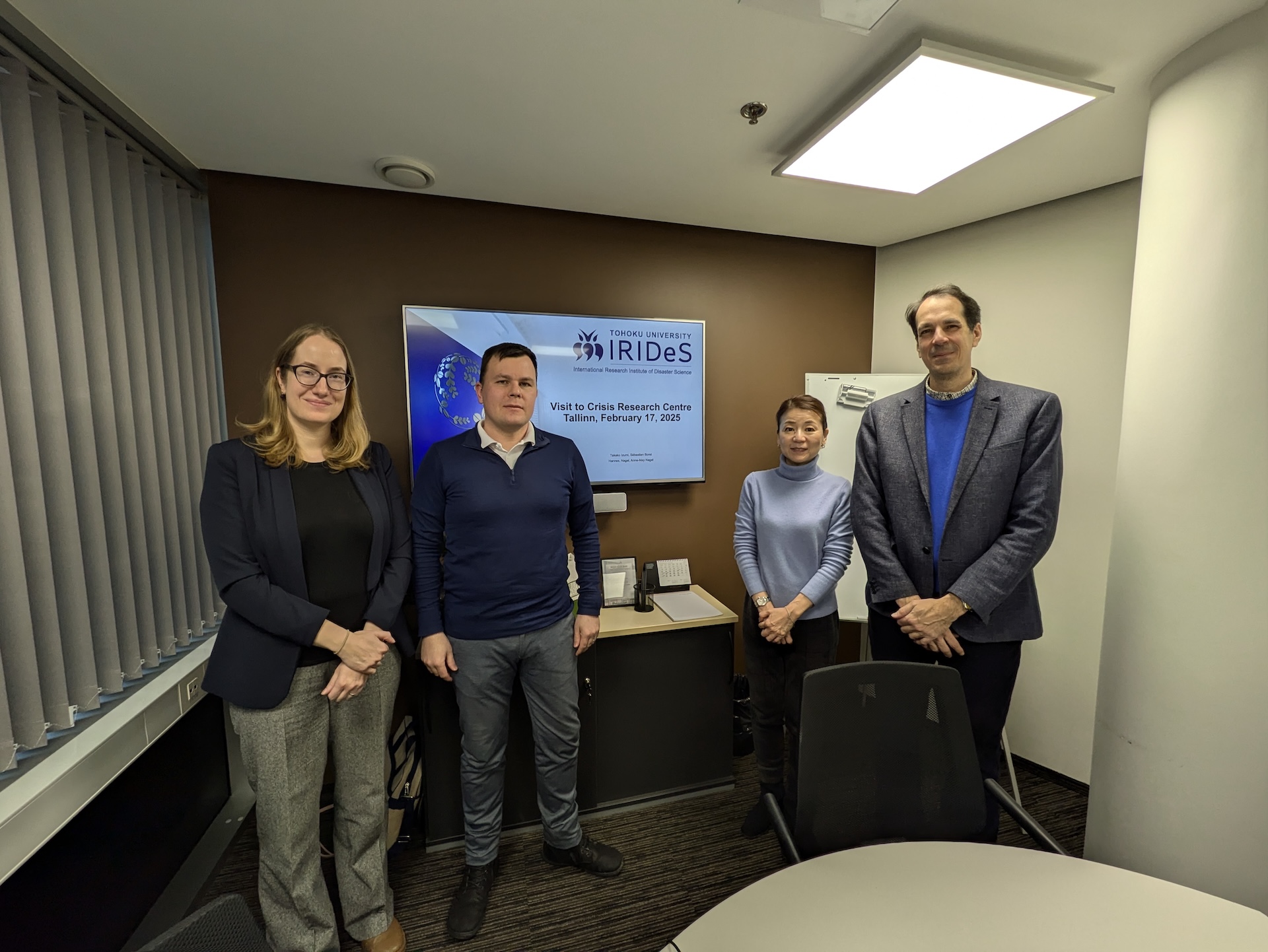
We hosted IRIDeS delegation from Japan to explore possibilities for collaboration
The International Research Institute of Disaster Science (IRIDeS) is a research institute at Tohoku University in Japan, established in 2012 in response to the Great East Japan Earthquake and tsunami of 2011. IRIDeS is made up of several research departments focusing on risk assessment and disaster mitigation, humanitarian and social sciences, disaster medicine, and practical research and collaboration. Their shared goal is to understand the physical mechanisms of natural disasters, develop effective prevention and mitigation technologies, and support post-disaster recovery and reconstruction efforts.
One of the key projects of the IRIDeS in Japan is the Global Centre for Disaster Statistics, which collects and analyzes disaster data worldwide. The goal is to improve disaster prevention and support informed policy-making. “Through extensive research, international collaboration, and community-based initiatives, IRIDeS strives to reduce the impact of natural disasters and contribute to the creation of resilient and sustainable societies,” said Hannes Nagel, head of the Crisis Research Center.
Building collaborative networks is crucial for the Crisis Research Center, as it enables the exchange of knowledge and best practices that help both researchers and local governments better prepare for crises. “Japan’s experience highlights the importance of long-term and systematic risk management – our role is to help Estonian municipalities benefit from these insights. At the same time, we can offer useful experience to Japan, particularly in engaging communities in civil protection preparedness. Cooperation in exchanging such knowledge helps build more resilient and better-prepared societies on both sides,” added Nagel.
Photo: Meeting on February 17 with Professor Takako Izumi (Director of the APRU Multi-Hazards Program, IRIDeS) and Associate Professor Sebastien Penmellen Boret (Tohoku University, IRIDeS; KRUK, 2025).
Jaga postitust:
